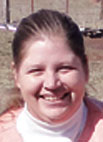
Brad and Hillary Drain of West Fork, Ark., met and married in 1999. They have two children, Brady who is 10 and Samantha who is 9.
Brad was in the military for 13 years and left with full disability benefits. The couple uses military thinking in how they live. Brad was an instructor for military helicopter mechanics when the couple started planning for life after the military. They bought their land sight unseen in 2004 but did not move to West Fork until 2006 after Brad’s military career.
Hillary said, “Goats were not in the picture. However, one day Brad came home with a surprise for the children, two kids named Lollipop and Floppy and we were off.”
Once the couple decided to develop a goat farm, they built their facilities in one year from scratch. Those facilities now include a 40’x80′ main barn. The barn houses a bee storage room for Brady’s 4-H project, a goat house, a milk parlor, a milk kitchen, a custom mix feed room, a small nursery, an office, and, of course, the main shop. They are currently building a hay barn and plan to be off the grid in one year through the installation of windmills and solar panels. Their ultimate goal is to be 100 percent self-sufficient.
The Drains have a good start on their sustainability goal. They raise a substantial organic garden including cabbage, peas, corn, potatoes and peppers among others. They have a fully stocked fish pond, get eggs from Brad’s parents, and have recently traded some chicken house trusses for a fully weaned bull calf. They also have a turkey named Thanksgiving, for obvious reasons. They currently have 40-50 goats from which they produce milk, butter, cheese and ice cream as well as lotion and soap. These items they consume as well as use to barter for other essentials like sugar and coffee. When it comes to bartering, Hillary said, “Fairness in bartering is essential. I don’t want to be jipped, but I also want to be fair to others. That’s just how it works.”
Hillary said another long-term goal was to increase lotion and soap production to the point where she would have a couple of employees. She said, “The trick is to get large enough to make more money but not so large that it ceases to be fun. Life is what you make it.”
An important factor in self-sufficiency is how they manage their goat herd, which has both milk and meat goats. They mix their own feed, using 12 percent sweet feed, 16 percent super stock feed, whole corn, soybean meal protein and Alfalfa pellets. She sprays the mix lightly with water as she mixes to eliminate dust and to get the protein to adhere to the corn.
Hillary said, “I buy what I can afford rather than worrying about papers so much. I use what I call intricate selective breeding to produce exactly what I need for myself and my customers.” Then Hillary grinned and quipped, “We call this place Oleo Acres, just a cheap little spread.”







